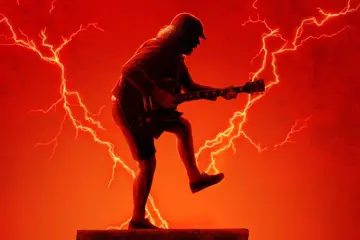 The Beatles
The BeatlesOfficially, The Beatles recorded 299 tracks. That doesn’t include BBC live recordings, demos, and alternate takes that emerged on boxed sets and charity albums.
Their rate of output was phenomenal. The first album, Please Please Me, was recorded in a single day, February 11, 1963. Until the mid-60s, they were churning out two albums a year in between tours, stand-alone singles, TV appearances, and movies.
So you can imagine that some of their tracks dipped below the affection line for the Fab Four.
One that John Lennon, George Harrison and Ringo Starr hated with venom was Paul McCartney’s Maxwell’s Silver Hammer. They further hated how he made them do it countless times to get it right.
McCartney had issues with some of Lennon’s stuff. He considered the smiley-face-to-Yoko I Want You (She So Heavy) too abstract to warm to. He walked out of the session during the acid-dream She Said She Said after throwing a tantrum when they didn't like his idea for its arrangement, and he hated the final treatment of Across The Universe.
As 2024 marks the 60th anniversary of the band’s only tour of Australia, here are ten beloved Beatles songs that its creators disliked making.
I AM THE WALRUS
Now a fully paid up member of the list of the Fabs’ best moments, it was a different story when Lennon trooped into Abbey Road Studios in August 1967 to play it to them for the first time on an acoustic guitar.
He just got perplexed looks. The melody was just two notes, based on a police siren he heard at his home outside London, to which he squeezed lines like “Mis-ter cit-y police-man". That day, when he was writing it, among his fan mail was a letter from a student from his old school, Quarry Bank High, telling him his class was interpreting Beatles lyrics.
This was the same school whose headmaster had predicted young Lennon was “bound to fail”.
So in revenge, he put together a set of indecipherable lyrics taken from LSD trips, schoolyard chants (“yellow matter custard green slop pie/ All mixed together with a dead dog's eye”), surrealist flashes (“Sitting on a cornflake waiting for the van to come”, Lewis Carroll’s 1871 poem The Walrus & The Carpenter about capitalism) and the Eggman nickname his friend Eric Burdon got for his sexual games.
After Lennon finished playing the song to them, there was silence. George Martin murmured, “I only have one question. What the hell do you expect me to do with that?”
Engineer Geoff Emerick recalled in his book Here There And Everywhere, “I distinctly remember the look of emptiness on all of their faces while they were playing I Am The Walrus. It is one of the saddest memories I have of my time with The Beatles.”
It took Lennon seven hours to do the vocals, giving him a tone of raspy desperation. They wheeled in an orchestra, 16-piece choir, and a segment of a BBC radio Shakespeare play and put it out as the B-side of Hello Goodbye, which wiggled up to Number One in Australia.
BIRTHDAY
During The White Album session on September 18, 1968, McCartney and Lennon came up with the idea of improvising something right there in the studio. It was McCartney’s riff.
Midway through recording, everyone went off to McCartney’s flat around the corner to see the British TV premiere of the 1956 rock and roll film The Girl Can’t Help It. It no doubt provided old-school inspiration for Birthday, which they finally finished off at 5 am.
McCartney was fond of Birthday, but Lennon told Playboy in 1980 it was “made up on the spot… It was a piece of garbage."
MAXWELL’S SILVER HAMMER
McCartney’s ode to student Maxwell Edis, who commits murders with a hammer, inspired his newfound appreciation for the experimental French author Alfred Jarry.
Jarry inspired the dada, surrealist and Theatre Of The Absurd movements, and the Beatles song squeezed in his "pataphysical" word into the lyrics.
The other three utterly hated the song and took great delight in shoving back when Macca lobbied for it to be released as a single.
John Lennon (Playboy): “I hated it. All I remember is the track – he made us do it a hundred million times.”
Ringo Starr (Rolling Stone): “The worst session ever was Maxwell’s Silver Hammer. It was the worst track we ever had to record. It went on for fucking weeks.”
George Harrison (Crawdaddy): “Sometimes Paul would make us do these really fruity songs. I mean, my God, Maxwell’s Silver Hammer was so fruity. After a while, we did a good job on it, but when Paul got an idea or an arrangement in his head…”
In the studio, Harrison had snapped at him in a bad mood because of the endless takes: “You’ve taken three days; it’s only a song.”
OB-LA-DI OB-LA-DA
According to various online polls, this McCartney toe-tapper was not only the worst Beatles track, but the worst song ever from the rock era! Like, wowch.
The title came from London-based Nigerian conga player Jimmy Anonmuogharan Scott Emuakpor (known as Jimmy Scott), whom he knew from the club scene.
It roughly meant life goes on. Scott had a band called Ob-La-Di Ob-La-Da. During the show, he would call out "Ob la di", the crowd would chant back "Ob la da", and Scott would conclude, "Life goes on."
McCartney told Scott he was using the phrase, giving him a cheque as goodwill. The conga player wanted a co-writer credit, which McCartney refused, saying, “It’s only a phrase, Jimmy.” Sometime later, Scott ended up in jail for late child support. He sent word to McCartney for money for lawyers. Paul agreed, but only if he dropped the demand for a writer’s credit.
When recording started on Wednesday July 3 1968, the others were not impressed. John called it “more of Paul’s granny music shit” and sent it up, talking in a Jamaican accent during the sessions.
It didn’t help inter-band tensions that the perfectionist Paul scrapped two versions, trying it with different arrangements each time. The song took 42 hours and a dozen takes, Paul trying for a slow ballad approach.
That changed when a very stoned Lennon marched in, shoved Paul off the piano, and aggressively hammered out the opening at a fast speed, shouting, “This is it! Come on!”
The glacier-like session was the straw that broke the camel’s back for The Beatles, said engineer Geoff Emerick. He himself quit working with The Beatles the day after the session end. George took a swipe at it on his Savoy Truffle, also from The White Album, which was recorded three months later.
“But what is sweet now, turns so sour
We all know Ob-La-Di, Ob-La-Da
But can you show me, where you are?”
The three vetoed McCartney’s desire for it to be a single. Instead, it became a UK chart-topper for Marmalade, and McCartney won an Ivor Novello songwriting prize for it. In Australia, The Beatles version came out as a double A single, with George Harrison’s While My Guitar Gently Weeps. It reached Number One and went gold for 50,000 sales.
EIGHT DAYS A WEEK
Coming in on their fourth album, Beatles For Sale (1964), Eight Days A Week marked the Lennon-McCartney team’s wider writing ambitions, with some smart arrangements and a last-minute fade-in.
The title came after McCartney heard his chauffeur and Ringo Starr use it separately to explain how hard they were working. John remembered the battle between Paul and him to land an A-side of a single.
Lennon: “Eight Arms To Hold You was the running title for (the) Help! (movie) before they came up with Help! It was Paul's effort at getting a single for the movie.
“That luckily turned to Help! which I wrote, bam! Bam! Like that and got the single. Eight Days A Week was never a good song. We struggled to record it and struggled to make it into a song. It was [Paul's] initial effort, but I think we both worked on it. I'm not sure. But it was lousy anyway.”
ONLY A NORTHERN SONG
The George Harrison song that George Martin "hated most of all" was this psychedelia-themed whinge about The Beatles’ songwriting royalties.
Northern Songs was a company set up in 1963 by the Fabs, manager Brian Epstein and publisher Dick James to publish Lennon-McCartney songs. John and Paul owned 30 per cent. George and Ringo only had 1.6 per cent each.
George Martin so hated this dirge that he made sure it didn’t end up on Sgt. Pepper. It was forgotten about it until 1969’s odds and sods throwaway collection, the Yellow Submarine soundtrack, which the band had little to do with.
Engineer Emerick recalled Harrison’s “first attempt at contributing a song to the Sgt. Pepper album was...a weak track that we all winced at. It had minimal musical content that seemed to go nowhere.”
Martin dismissed Harrison’s output until Here Comes The Sun in 1969. “That was the first time he showed real cleverness in a song. From Here Comes The Sun onward, everything he did was pretty good.”
KOMM, GIB MIR DEINE HAND/ SHE LIEBT DICH
Komm, gib mir deine Hand and Sie liebt dich were translated into German, Come, Give Me Your Hand (for I Want To Hold Your Hand), and She Loves You.
Their record company identified Germany as the first place outside the UK to market them. After all, they had honed their live skills playing red light clubs in Hamburg for hours on end from August 1960 to May 1962, sleeping backstage next to the smelly toilets.
It was in Germany where they adopted the art student all-black look and met Astrid Kirchher, who gave them their career-changing mop-top hairstyles, and Klaus Voorman, who later designed the Revolver album cover and played in Lennon’s Plastic Ono Band.
The German trips ended when Harrison was deported for lying about his age, and McCartney and drummer Pete Best were booted out on arson charges.
The German versions lacked enthusiasm. Martin recalled in The Beatles Anthology, “They laughed: ‘That’s absolute rubbish.’ So I said, ‘Well, if we want to sell records in Germany, that’s what we’ve got to do.’ So they agreed to record in German. I mean, really, it was rubbish, but the company sent over one Otto Demmlar to help coach them in German”.
LADY MADONNA
By 1968, The Beatles were returning to their rock roots after a series of psychedelic experiments. Lady Madonna was inspired by the 1950s piano-driven boogie-woogie of US rocker Fats Domino.
The song was rushed as The Beatles were leaving for Rishikesh in India to study with the Maharishi Mahesh Yogi at his ashram.
As a result, John Lennon was somewhat dismissive of it. "Good piano lick, but the song never really went anywhere.” He added, "Maybe I helped him on some of the lyrics, but I'm not proud of them either way."
It’s quite possible that Lennon’s dismissal of the song related to he and McCartney’s feud to get their songs released as singles. At the time, John had written Hey Bulldog, which also had a piano-driven rhythm, and he unsuccessfully pushed for an A-side. It only emerged on the Yellow Submarine soundtrack.
Lady Madonna went Number One in a dozen countries, including Australia, and sold a million in the States.
Through the years, McCartney has gained greater insight into where those lyrics came from. It had started life as Virgin Mary, with the religious theme using lines as "Sunday morning creeping like a nun" and money being "heaven sent".
McCartney also later spoke of a National Geographic front cover (issue January 1965) of a “Mountain Madonna.” It portrayed a Pacific woman (not African, as he remembered it) with three small children and a baby at her breast. It sparked the line, “Baby at your breast wonders how you manage to feed the rest.”
Interestingly, the song about a single overworked mother coping with poverty and a brood of ankle-biters seemed to have been inspired by McCartney’s mother, a midwife, who worked with these women.
By the time of his 2021 book The Lyrics, he had realised: "The fact that my mother Mary died when I was fourteen is something I never got over. A song that portrays a very present, nurturing mother has got to be influenced by that terrible sense of loss.
“The question about how 'Lady Madonna' manages 'to feed the rest' is particularly poignant to me, since you don't have to be a psychoanalyst to figure out that I myself was one of 'the rest.' I must have felt left out. It's really a tribute to the mother figure, a tribute to women."
ACROSS THE UNIVERSE
One of John Lennon’s most tender, melodic and cosmic ballads – from the Let It Be album – continues to resonate today.
According to Lennon, Across The Universe was written in late 1967 after an argument with his first wife, Cynthia, in their bedroom. “She must have been going on and on about something and she'd gone to sleep and I kept hearing these words over and over, flowing like an endless stream.
“I went downstairs, and it turned into a sort of cosmic song rather than an irritated song, rather than a ‘Why are you always mouthing off at me?’ Hence the line: ‘Words are flowing out like endless rain into a paper cup’.”
Lennon’s interest in transcendental meditation turned the song into a spiritual bond, featuring the Sanskrit mantra "Jai guru deva om" roughly translated as "Hail to the divine guru."
Lennon would state in his 1970 interview with Rolling Stone: "It's one of the best lyrics I've written. In fact, it could be the best. It's good poetry, or whatever you call it, without chewin' it. See, the ones I like are the ones that stand as words, without melody. They don't have to have any melody, like a poem; you can read them."
But Lennon hated The Beatles’ recording, saying, "They didn't make a good record of it". He complained that the guitars were out of tune, and so was his singing. He tried a number of takes, including with backward guitar and harp, and high voices from two Beatles fans waiting outside Abbey Road Studios. None were used for the Let It Be version.
He said none of the Beatles were “supporting me or helping me with it and the song was never done properly". He even accused McCartney of sabotage.
“Paul would ... sort of subconsciously try and destroy a great song ... usually we'd spend hours doing little detailed cleaning-ups of Paul's songs. When it came to mine, especially if it was a great song like Strawberry Fields or Across The Universe, somehow this atmosphere of looseness and casualness and experimentation would creep in."
Across The Universe continued to work with covers by David Bowie (featuring Lennon), Fiona Apple, Rufus Wainwright, Norwegian singer Aurora (for triple j’s Like a Version) and last year’s rendition by Devang Goud with a sitar solo.
Alicia Keys, Alison Krauss, Billie Joe Armstrong, Bono, Brian Wilson, Norah Jones, Steven Tyler, Stevie Wonder, Tim McGraw and Velvet Revolver sang it at the 2005 Grammys for 2004 tsunami victims. It was released it as a digital single and reached Number 22 in America.
GOOD MORNING GOOD MORNING
Music fans might rate 1967’s Sgt. Peppers Lonely Hearts Club Band as the most important rock album ever. But producer George Martin was frustrated with it… because he had agreed with EMI Records not to include the sublime Strawberry Fields Forever and Penny Lane as they’d been released as singles.
Including them would have made Sgt. Peppers a fully certified untouchable rock masterpiece. It also would have meant some of its weaker moments would have been dropped. Topping this dubious list was Lennon’s nonsensical Good Morning Good Morning. Writing with the TV turned low in the background, was inspired by a Kellogg’s breakfast cereal (with sound effects of animals), and lines as It's time for tea and Meet the Wife, referencing the BBC sitcom.
Lennon would have been the first to have the track dropped. "It's a throwaway, a piece of garbage, I always thought.”






